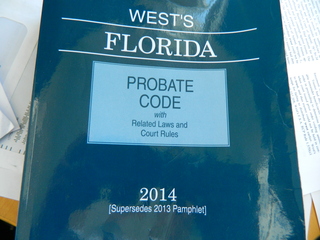How Can You Find a Deceased Relative’s Digital Assets?

There is a lot on the web about how to protect your assets. In fact the modern age of digital banks and money markets with no brick and mortar locations or paper records, begs a larger question. How do you track down all the assets of a loved one after a poorly planned death? What happens to the lost funds, can anyone help find them?
What is Digital Probate? Is it flawless? Not right now.
Probate is the process within the Courts for administering a will. It involves among other things:
- Identifying and gathering their assets
- Paying off their creditors, and
- Distributing the assets to the beneficiaries.
Digital Probate refers to the new age world where many banks and other types of accounts are not held in brick and mortar stores, on paper. Many accounts are perpetually digital, making their discovery by a Personal Representative difficult.
However, as we live more and more of our lives online, there is a problem – when someone dies, how do you identify and gather assets? Back in the old days – up until about 5 to 10 years ago – when a person died, their relatives, personal representatives, or attorney, would go to their house and go through their papers. They were usually organized in a file cabinet, or if the parties were less lucky, unorganized in a drawer or envelope somewhere. These stacks of papers generally had account statements from their banks, brokerage houses, and the like. Then, when looking at the statements, their relatives could see all the various bills that they were paying, and find out about other accounts – such as hotel or airplane reward accounts.
After going through their papers, their personal representative (what an executor is called in Florida) would then intercept their mail. This was before e-mail, when snail mail was easy to access and collect. Again, after a few months, more statements would come. This would allow the personal representative to gather a complete financial breakdown of the decedent’s life. The P.R. could then obtain the assets; cancel the necessary accounts, etc.
Of course, this all rests on the fact that people still had papers. Today, if you’re under the age of fifty, it’s likely that there are no papers, and you may not get anything in the mail either.
Take a brief moment and ask yourself where are the following documents?
- Bank account statements? Online or Print?
- Stock statements? Online or Print?
- Hotel affinity points? Online or Print?
Instead of paper statements coming to their mailbox, “digital” statements go to their email address. People often do not have access to their loved one’s email accounts so this is a major game changer. The executor might not have access to the email accounts, the account providers might not give you the password, oh, and by the way, accessing the decedent’s email may be a federal felony under the Electronic Communications Privacy Act. Although there may not be a federal indictment lurking on your doorstep there are some other obvious issues such as actually finding the accounts.
What kind of accounts should you be on the look out for? It’s not just bank accounts or your stock portfolio anymore.
- Social media accounts -Facebook and LinkedIn;
- Photo sharing accounts — Flicker and Instagram;
- Hotel and airline “points” accounts (many of which by the way are transferable upon death)
- Online dating accounts;
- Online sales accounts.
Some of these may have actual monetary value – such as reward points. Some may have sentimental value – a picture sharing account is now the replacement for the antiquated “photo album” days. And some accounts you may just want to cancel so they stop charging the decedent, or to prevent online fraud and identity theft – eBay.
When going through probate if you suspect that the decedent had digital accounts the first step is to alert the Personal Representative. For more on Probate proceedings in Florida visit our FAQ video library at: http://www.pankauskilawfirm.com/